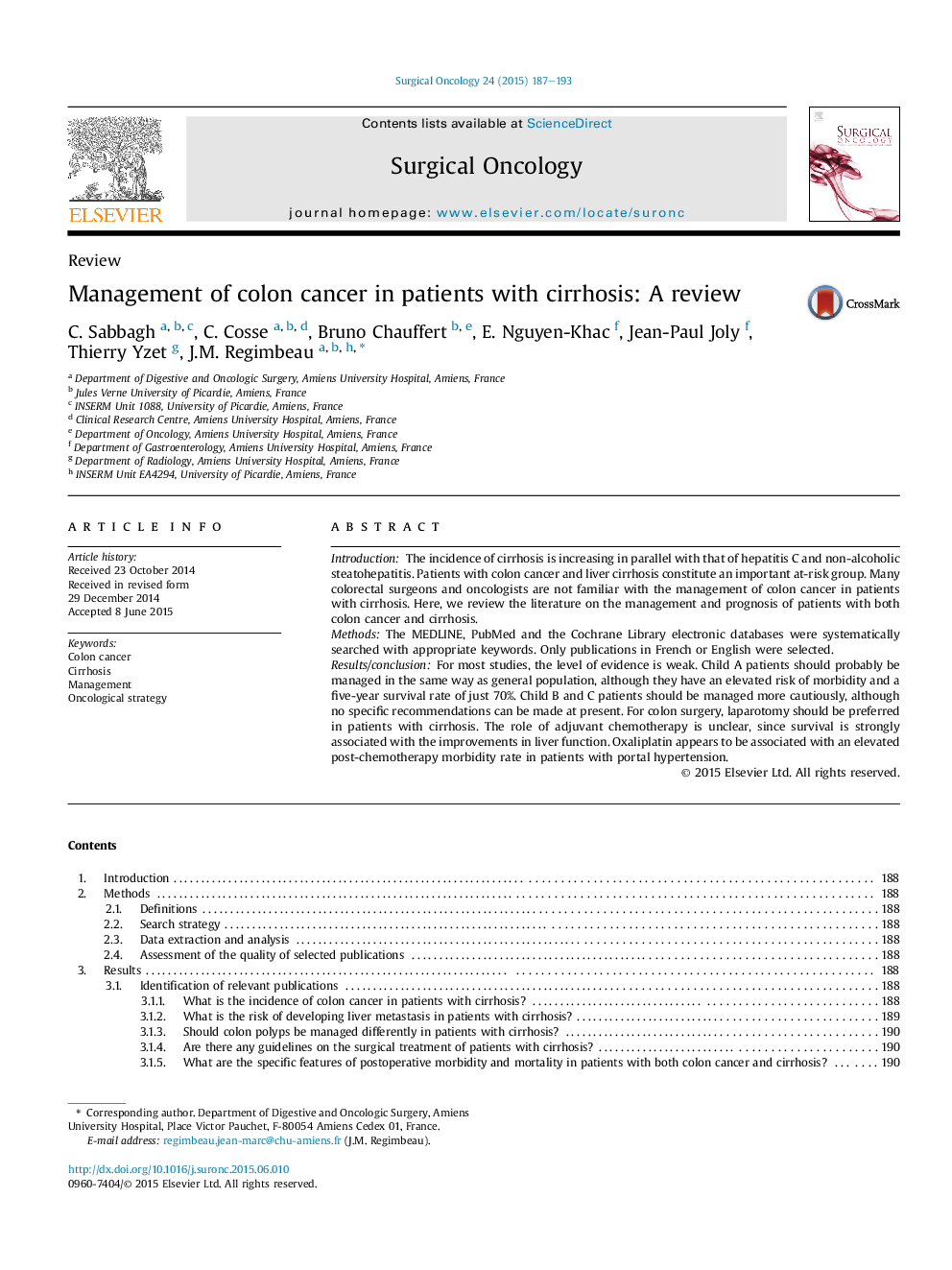| Article ID | Journal | Published Year | Pages | File Type |
|---|---|---|---|---|
| 3997673 | Surgical Oncology | 2015 | 7 Pages |
•Patients with alcoholic cirrhosis have an elevated risk of developing colon cancer.•Cirrhotic patients may have a lower risk of developing liver metastases.•Postoperative morbidity and mortality are elevated in patients with cirrhosis.•For improved survival, optimization of liver function is more important than adjuvant chemotherapy.
IntroductionThe incidence of cirrhosis is increasing in parallel with that of hepatitis C and non-alcoholic steatohepatitis. Patients with colon cancer and liver cirrhosis constitute an important at-risk group. Many colorectal surgeons and oncologists are not familiar with the management of colon cancer in patients with cirrhosis. Here, we review the literature on the management and prognosis of patients with both colon cancer and cirrhosis.MethodsThe MEDLINE, PubMed and the Cochrane Library electronic databases were systematically searched with appropriate keywords. Only publications in French or English were selected.Results/conclusionFor most studies, the level of evidence is weak. Child A patients should probably be managed in the same way as general population, although they have an elevated risk of morbidity and a five-year survival rate of just 70%. Child B and C patients should be managed more cautiously, although no specific recommendations can be made at present. For colon surgery, laparotomy should be preferred in patients with cirrhosis. The role of adjuvant chemotherapy is unclear, since survival is strongly associated with the improvements in liver function. Oxaliplatin appears to be associated with an elevated post-chemotherapy morbidity rate in patients with portal hypertension.
